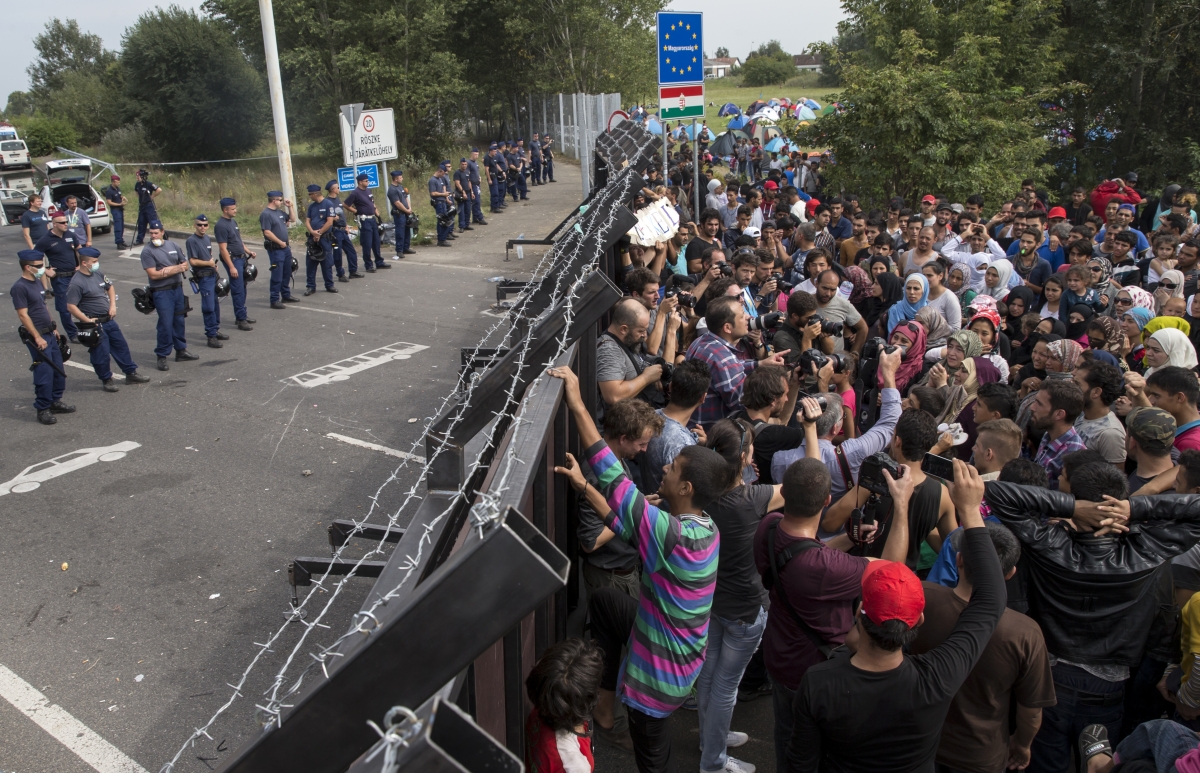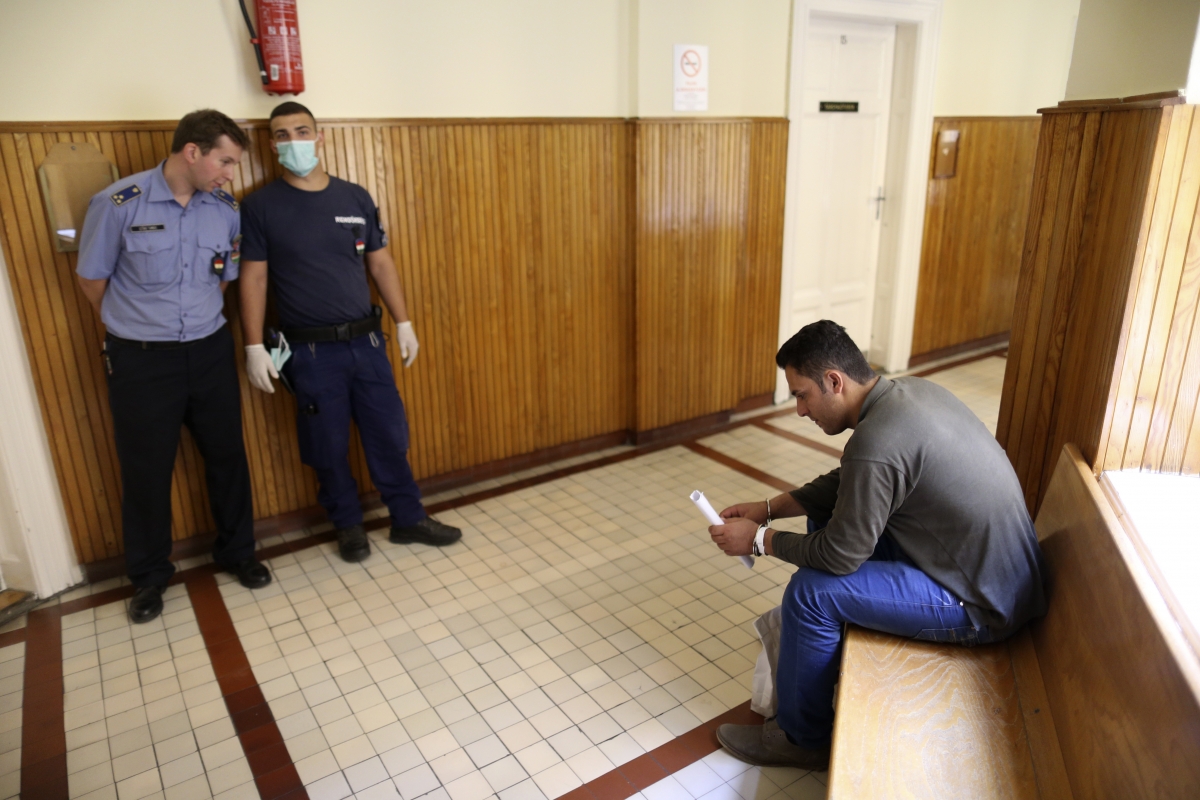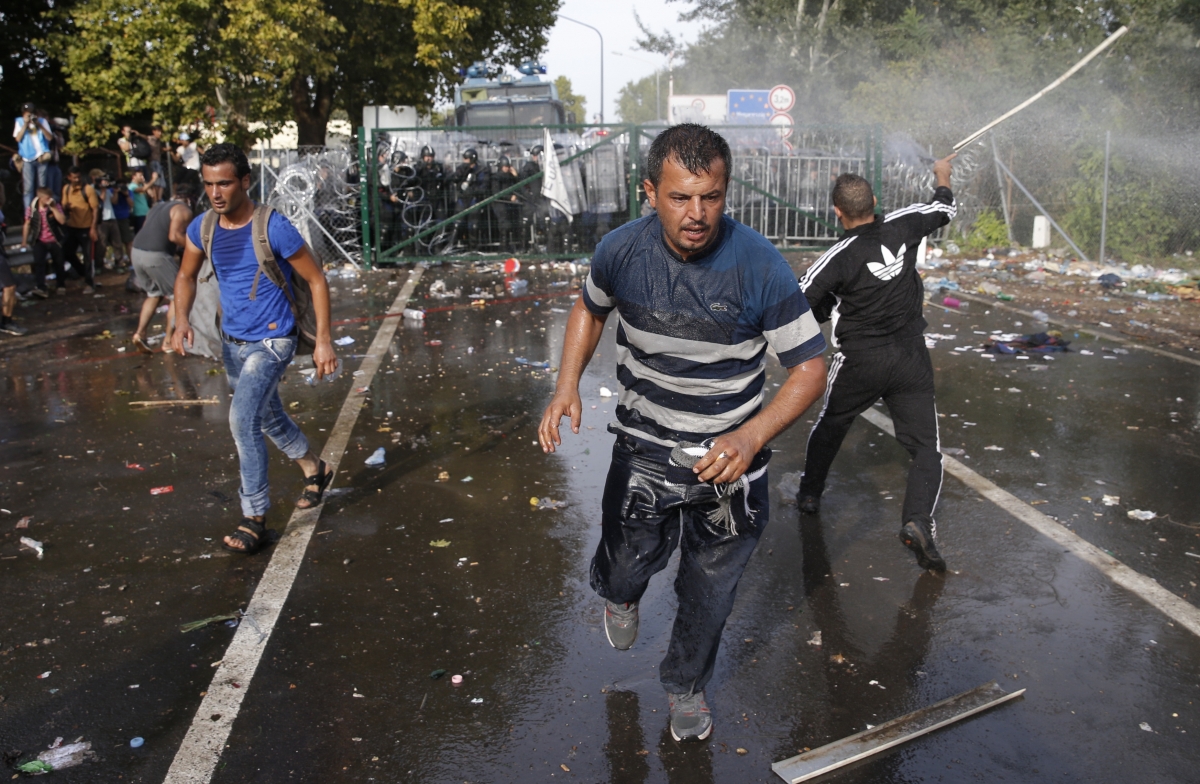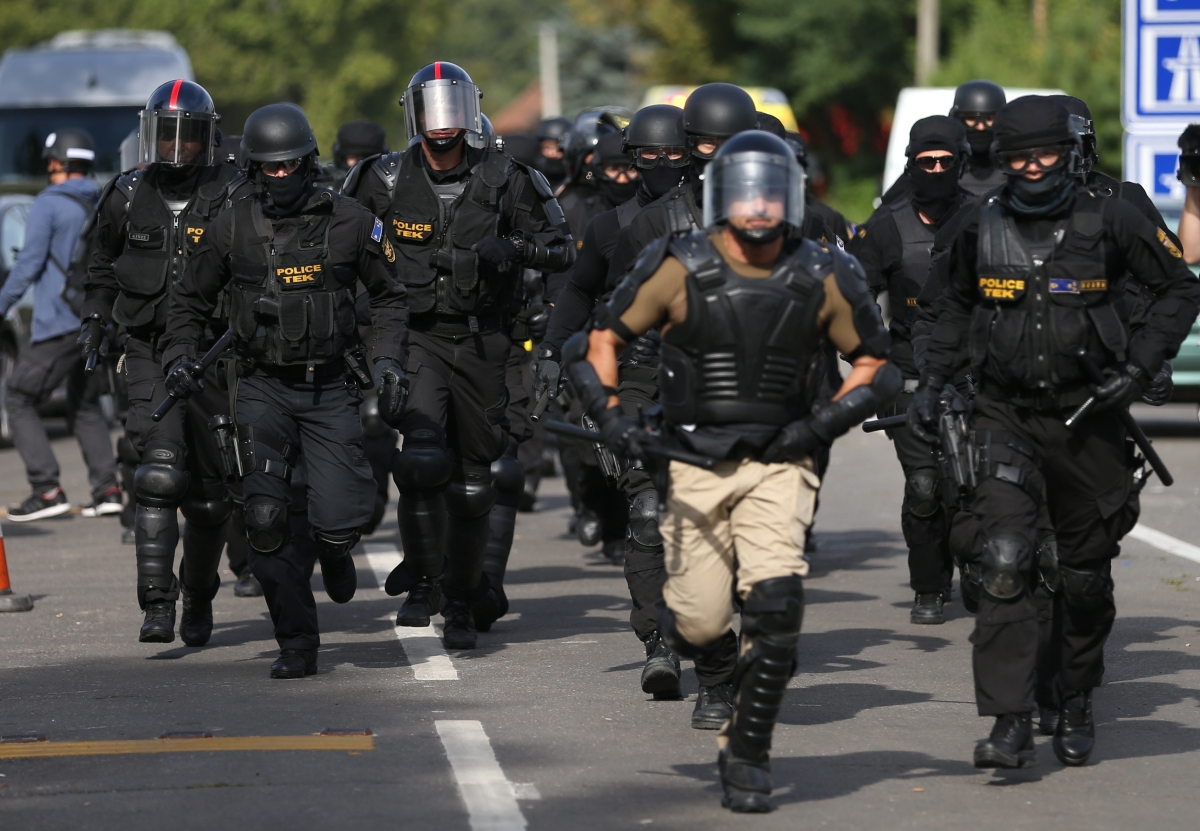Migrant crisis: Hungary deploys tear gas and water cannons on refugees at Viktor Orban's fence



Hungary has sentenced an Iraqi migrant for illegally crossing into the country, the first conviction handed down under harsh new laws pushed forward by the government of Viktor Orban in response to the immigration influx. This comes against the backdrop of police firing tear gas and using water cannons on would-be refugees gather at the Serbian border.
A judge in the border city of Szeged banned Ahmed Suadi Talib from Hungary for one year and issued him with an order of expulsion. The man told the court he was a student in Syria before fleeing from the Islamic State (Isis) jihadi group and added he was not aware crossing into Hungary was unlawful, the BBC reported.
"Ignorance of the law doesn't excuse any body," he was told by the judge in reply, who also ordered him to pay 19,050 Hungarian forints (£45, $70) in court costs. He is expected be forcibly sent back to Serbia. Hungarian authorities said they have arrested 519 migrants for illegal crossing since the new regulations came into force on 15 August.
Chaos also broke out a few kilometres away along the 4-meter razor wire border fence hastily erected to stop migrant crossings. Hungarian police fired tear gas and deployed water cannons at crowds of migrants who tried to break into the barrier.
Hundreds have been camped outside the Serbian town of Horgos since Budapest sealed off the border earlier this week. Protests broke out this morning (16 September) as migrants and refugees, many of whom escaped war in the Middle East, demanded to be allowed in to continue their journey.
"There is a lot of frustration because they come so far and in such tough conditions, they walked hundreds of kilometre and then they get here [stuck] in a kind of a limbo," Francine Uenuma, who was in Horgos for charity Save the Children, told IBTimes UK.
Uenuma said that the situation at the border had not diminished migrants' determination to reach Western Europe. Dozens circumvented the problem by opening a new route through Croatia, where more than 150 arrived from Serbia on 16 August.
"They have left so much violence and hardship behind that this is just another obstacle. Nobody has given any indication they want to go back," Uenuma said. "They want get to a place where they and their families can be safe."
More than 200,000 migrants have arrived in Hungary since January, following a route that led them from Turkey to Greece and then up the Balkans. Most hope to reach Germany and other Northern European countries with advanced social and welfare systems.



© Copyright IBTimes 2025. All rights reserved.




















